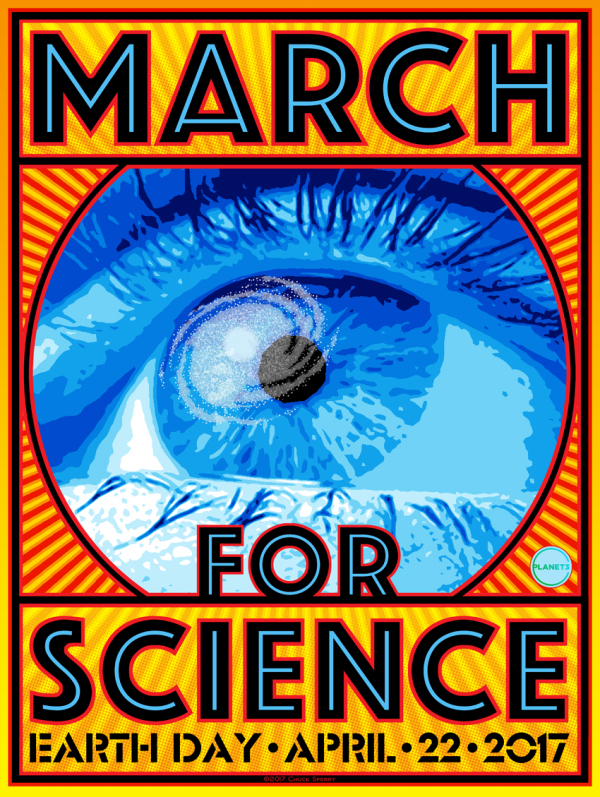WASHINGTON POST: Saturday’s March for Science is political, but not partisan. So say the organizers, who insist that they can walk that fine line even in an era of ideological rancor and extreme polarization. “We’ve been asked not to make personal attacks or partisan attacks,” said honorary national co-chair Lydia Villa-Komaroff, in a teleconference with reporters. But Villa-Komaroff, a cell biologist who will be among those with two-minute speaking slots, quickly added: “This is a group of people who don’t take well being told what to do.”
The Science March, held on Earth Day, is expected to draw tens of thousands of people to the Mall, and satellite marches have been planned in more than 400 cities on six continents. The crowd will gather on Saturday near the Washington Monument for five hours of speeches and teach-ins, culminating in the march at 2 p.m. The march will follow Constitution Avenue along the north edge of the Mall to the foot of Capitol Hill. The weather forecast is a tricky one — it’s not an exact science, apparently — but attendees should be prepared for rain, particularly in the afternoon.
Protest marches may be common in Washington these days, but one centered on the value of science is unprecedented. The march is part of a wave of activism in the research community. Scientists are jumping into the political fray by running for public office — such as in southern California, where geologist Jess Phoenix, a Democrat, has announced her candidacy for a congressional seat held by a Republican.
Many mainstream science organizations — such as the American Association for the Advancement of Science, the American Geophysical Union, and the American Chemical Society — have signed on, despite their lack of experience in going to the barricades.Rush Holt, head of AAAS, said there was initial hesitation about whether this was the kind of event a scientist ought to be joining but that members of his association overwhelmingly support the decision to participate.
This is not simply a reaction to President Trump’s election, Holt said. Scientists have been worried for years that “evidence has been crowded out by ideology and opinion in public debate and policymaking.” Long before Trump’s election, people in the scientific and academic community raised concerns about the erosion of the value of expertise and the rise of pseudoscientific and anti-scientific notions. Science also found itself swept up into cultural and political battles; views on climate science, for example, increasingly reflect political ideology. MORE
RELATED: March For Science
RELATED: Philadelphia March For Science

